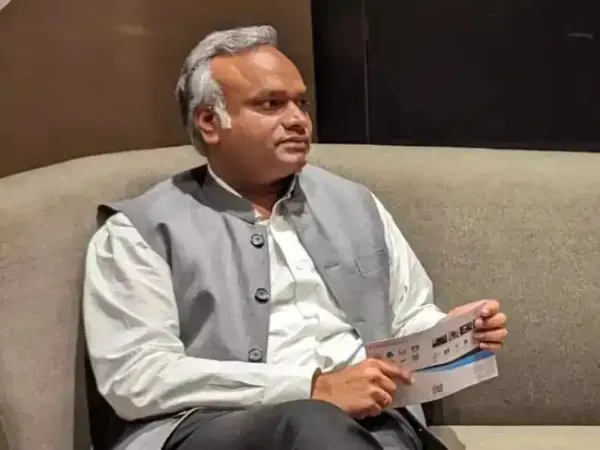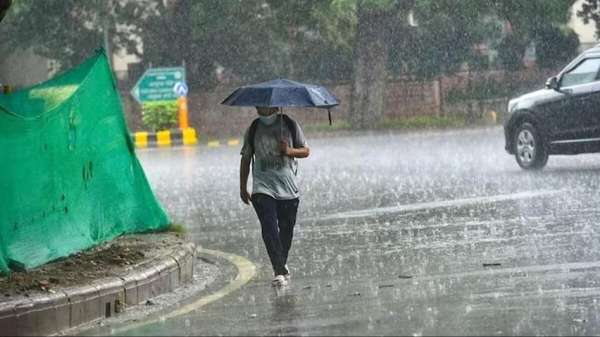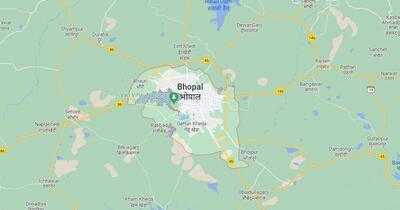The Karnataka government recently drew national attention with the early workings of a Karnataka Misinformation and Fake News (Prohibition) Bill, 2025, placed before the state cabinet last week. The bill aims to tackle misinformation and fake news on social media platforms, with violations attracting a penalty of Rs 10 lakh and seven years' imprisonment.
A leaked 11-page draft noted broad provisions under the bill for anti-feminist content, superstition, and insults to Sanatan Dharma. This has sparked a backlash from civil society members and digital rights activists.
While the bill is still under deliberation, state IT Minister Priyank Kharge said that it is being misinterpreted. In a conversation with ET, he cleared the air on what the state intends to achieve with the new bill.
Q: Is the draft misinformation bill final? What is the 11-page document circulating online?
The 11-page document is not the draft. That is the opinion of a few people in the law department. They have to still bounce it off the Home and IT departments, only then will it be taken forward. When the law minister addressed the press after the cabinet meeting, he just said that they are bringing in three to four bills. It has not been consulted with evidence yet.
Q: What issues is the bill trying to solve? It looks to criminalise the spread of misinformation. What are the government’s thoughts behind it?
It's not me saying it’s a problem. The World Economic Forum report said that India is number one in spreading misinformation. One of the top three people in our country, that is, the former Chief Justice of India, DY Chandrachud, has said that misinformation is extremely dangerous for democracy.
The Election Commission of the country, during the Parliament election of 2024, said that three Ms are extremely dangerous for the electoral process. That is muscle, money, and misinformation. Even Prime Minister Narendra Modi agrees that misinformation is a havoc and is a threat to democracy. When everybody acknowledges that, somebody needs to do something about it.
Q: Critics say the bill could curtail free speech. What do you say to that?
We're not trying to change any policy. We're just trying to connect the dots that already exist and make a bill out of it. When we did the Information Disorder Tracking Unit (a fact-checking exercise that ran a 90-day trial during the Lok Sabha polls), we classified the information circulating online as disinformation, malinformation, or fake news. We just want to debunk such instances.
Q: Would you support such a law if the central government were to introduce it? What are your views on the Broadcasting Services (Regulation) Bill, 2023.
We are not doing anything such as tampering with the IT Act, 2000. (The centre’s bill attempts to regulate digital news and online content creators, previously under the purview of the IT Act, leading to questions about the overreach and a potential clash of regulatory powers.) We are merely categorising any public interest information as true or false. The Centre’s bill attempts to take away one’s privacy. They want to look into your phone, what you're shopping and want to control your mind.
Q: Who decides what is true or false? Will the government decide?
We are not deciding whether it is misinformation or fake news. We are getting professionals to do that. We would love it if even the Editors Guild of India, or the Press Council of India, or anybody else wants to be a part of it. If any trusted news outlet comes out and says, ‘Look, this is misinformation, it is fake news,’ won’t it help us? That’s all we are trying to do with the bill.
Q: What about penalising users who unknowingly share misinformation? Will they be punished?
The intent is to go to the source, who is trying to spread the misinformation. If someone is willingly forwarding some image or news which is fake, they will also be reprimanded. For example, you know your friends are going to murder somebody. You’re not going to drive the knife in, but you are there. You did everything. You drove him. That is abetment of the crime.
Kharge said the bill will require a wider level of consultations and emphasised the government’s take, focusing on accountability and transparency.
A leaked 11-page draft noted broad provisions under the bill for anti-feminist content, superstition, and insults to Sanatan Dharma. This has sparked a backlash from civil society members and digital rights activists.
While the bill is still under deliberation, state IT Minister Priyank Kharge said that it is being misinterpreted. In a conversation with ET, he cleared the air on what the state intends to achieve with the new bill.
Q: Is the draft misinformation bill final? What is the 11-page document circulating online?
The 11-page document is not the draft. That is the opinion of a few people in the law department. They have to still bounce it off the Home and IT departments, only then will it be taken forward. When the law minister addressed the press after the cabinet meeting, he just said that they are bringing in three to four bills. It has not been consulted with evidence yet.
Q: What issues is the bill trying to solve? It looks to criminalise the spread of misinformation. What are the government’s thoughts behind it?
It's not me saying it’s a problem. The World Economic Forum report said that India is number one in spreading misinformation. One of the top three people in our country, that is, the former Chief Justice of India, DY Chandrachud, has said that misinformation is extremely dangerous for democracy.
The Election Commission of the country, during the Parliament election of 2024, said that three Ms are extremely dangerous for the electoral process. That is muscle, money, and misinformation. Even Prime Minister Narendra Modi agrees that misinformation is a havoc and is a threat to democracy. When everybody acknowledges that, somebody needs to do something about it.
Q: Critics say the bill could curtail free speech. What do you say to that?
We're not trying to change any policy. We're just trying to connect the dots that already exist and make a bill out of it. When we did the Information Disorder Tracking Unit (a fact-checking exercise that ran a 90-day trial during the Lok Sabha polls), we classified the information circulating online as disinformation, malinformation, or fake news. We just want to debunk such instances.
Q: Would you support such a law if the central government were to introduce it? What are your views on the Broadcasting Services (Regulation) Bill, 2023.
We are not doing anything such as tampering with the IT Act, 2000. (The centre’s bill attempts to regulate digital news and online content creators, previously under the purview of the IT Act, leading to questions about the overreach and a potential clash of regulatory powers.) We are merely categorising any public interest information as true or false. The Centre’s bill attempts to take away one’s privacy. They want to look into your phone, what you're shopping and want to control your mind.
Q: Who decides what is true or false? Will the government decide?
We are not deciding whether it is misinformation or fake news. We are getting professionals to do that. We would love it if even the Editors Guild of India, or the Press Council of India, or anybody else wants to be a part of it. If any trusted news outlet comes out and says, ‘Look, this is misinformation, it is fake news,’ won’t it help us? That’s all we are trying to do with the bill.
Q: What about penalising users who unknowingly share misinformation? Will they be punished?
The intent is to go to the source, who is trying to spread the misinformation. If someone is willingly forwarding some image or news which is fake, they will also be reprimanded. For example, you know your friends are going to murder somebody. You’re not going to drive the knife in, but you are there. You did everything. You drove him. That is abetment of the crime.
Kharge said the bill will require a wider level of consultations and emphasised the government’s take, focusing on accountability and transparency.





